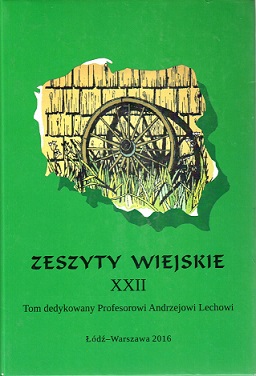Góra Skarzawa. Archeologiczne (i nie tylko) odkrywanie miejsca
DOI:
https://doi.org/10.18778/1506-6541.22.57Abstrakt
The article presents an example of Mount Skarzawa (near Mstów, on the north-east of Częstochowa) which has shown the cognitive potential of ethnographic interviews for the archaeological research on the recent past. Skarzawa according to the narrative of local residents was regarded as a bad place. There are many legends connected with the Skarzawa Mountain: about suicides or the calf, which haunted at night; about Polish insurgents buried here in 1863; Germans, who hid the treasure during the World War I and about the hiding Jews at the beginning of World War II. Conducted archaeological research revealed, among others: cavity containing bones of the human hand and parts of equipment of a German soldier from the World War I. It can be assumed that in the grave a soldier or a few German soldiers who died during the war were buried because of the German-Russian actions that took place around Mstów in 1914–1915. Probably the moment of burial was registered by local residents, which gave rise to stories about treasure buried by the Germans during the World War I. Probably after the war the grave was exhumed and the remains were transferred to one of the collective war cemeteries of German and Russian soldiers in the vicinity of Częstochowa.
Pobrania
Pobrania
Opublikowane
Jak cytować
Numer
Dział
Licencja

Utwór dostępny jest na licencji Creative Commons Uznanie autorstwa – Użycie niekomercyjne – Bez utworów zależnych 4.0 Międzynarodowe.











